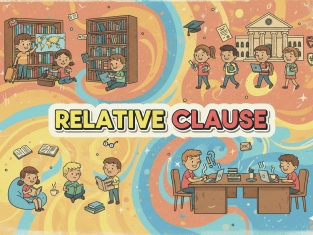First Conditional
Table of Contents
Exercises
Explanation
Structure
|
If-clause |
Main clause |
|
If + Present Simple |
will + base verb |
Example:
If I have enough time, I will bake a cake.
Use Present Simple after if, and will + verb for the result.
More Examples
-
If it gets cold tonight, we will light a fire.
-
If she eats too much, she will feel sick.
-
If I see your brother, I will give him the message.
-
If they study together, they will pass the test.
-
If we leave now, we will catch the train.
Negative Form
Add not after will or in the if part:
-
If I don’t go shopping, I won’t have any food.
-
If he doesn’t call me, I won’t know the plan.
Question Form
You can ask questions in two ways:
-
If you are free tomorrow, will you come to the cinema?
-
Will you help me if I need support?
No comma is used when if comes last.
Other Words Instead of if
|
Word |
Meaning |
Example |
|
when |
at that time |
When I get home, I will relax. |
|
unless |
if not |
Unless you hurry, you will be late. |
|
as soon as |
right after |
As soon as it stops raining, we will go outside. |
|
before / after |
time link |
Before we eat, I will wash my hands. |
Other Verbs Instead of will
We can use can, may, or must for different meanings:
-
If you finish early, you can play video games.
-
If she studies hard, she may win a scholarship.
-
If he parks here, he must pay for parking.
In Short
Use the First Conditional for real possibilities in the future.
It connects something that might happen now with what could happen next.
Example:
If you keep practicing, you will speak English confidently!

